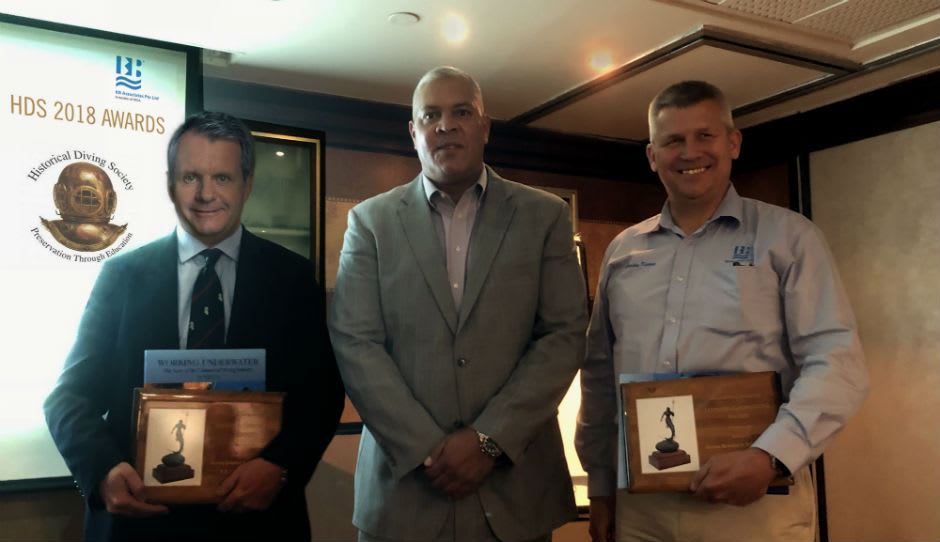Course description
This e-learning course is designed for the training of both Divers and Supervisors who maybe using NITROX during diving operations.
Surface supplied diving is sometimes carried out using a breathing gas mix of oxygen and nitrogen with a higher percentage of oxygen in the mix than in natural compressed air. The common industry terminology for such a gas mix is NITROX.
Diving while breathing NITROX has various advantages and disadvantages, one such advantage is that the required decompression time for any particular dive can be reduced in comparison to the same dive using natural compressed air. The technique is normally used to ensure that particular dives can be carried out without the diver requiring any decompression but in other cases is used to ensure that very lengthy decompression is not required.
The dive plan for the use of NITROX needs to consider all the relevant safety considerations of using this technique in place of natural compressed air.
One of the main safety considerations not normally present when breathing compressed air is the increased risk of oxygen toxicity problems, particularly those occurring while the diver is still under water.
Do you work at this organisation and want to update this page?
Is there out-of-date information about your organisation or courses published here? Fill out this form to get in touch with us.
Upcoming start dates
Suitability - Who should attend?
This e-learning course is designed for the training of both Divers and Supervisors who maybe using NITROX during diving operations.
The course has been developed using the guidance documents and references provided by International Marine Contractors Association (IMCA), the International Oil and Gas Operators Association (IOGP), USN Diving Manual Revision 6 and industry best practice.
WHO SHOULD ATTEND?
Divers, Standby Divers, Supervisors and Equipment Technicians, Project Engineers, Client Representatives, Diving Operations Managers, Offshore Medics or anyone who works offshore with diving projects using NITROX as the divers breathing medium (gas).
ENTRY REQUIREMENTS
This course is designed to deliver awareness and training competence to anyone who wishes to take the course. On this basis, there are no formal entry requirements. However, due to various terms and information used throughout the course, it is strongly recommended that you have an understanding of or have attended formal commercial diver training
Course Content
- Safety consideration in accordance to IMCA D014, adequate safety management system, detailed risk assessment (Water Depth, Oxygen toxicity, Emergency Recovery, Contingency Plan, Secondary gas supply) and hazard identification
- Understanding the signs and symptoms of acute oxygen toxicity
- Understanding the signs and symptoms of chronic oxygen toxicity
- Advantages/Disadvantages of using NITROX
- Types of equipment used in accordance to IMCA D023
- Understanding Partial Pressure Gas Calculations
- Understanding Equivalent Air Depth (EAD) Calculations
- Understanding the use of decompression tables related to Equivalent Air Depth (EAD)
Outcome / Qualification etc.
LEARNING OBJECTIVES
To develop the competencies in using NITROX during diving operations
ASSESSMENT AND CERTIFICATION
Delegates who have successfully completed the course will be requested to proceed to the online (multiple-choice questions) examination. On successfully completion of both the course and the online examination, delegates will be awarded with a KBA Training Centre Pte Ltd e-certificate ‘NITROX Diver Training Course - eLearning’.
Course delivery details
Online e-Learning
Expenses
SGD 80
Request info
Case Studies
Taking Safety to Greater Depths
Want to know what it's really like to work in a dangerous, high pressure environment?
In this interview, Darren shares his military experience, what he has done since leaving the forces and how NEBOSH qualifications opened doors for him....
KBA receives the 2018 Historical Diving Society Leonard Greenstone Award
KB Associates Pte Ltd (KBA) group of companies are pleased to announce that they have received the 2018 Historical Diving Society Leonard Greenstone Award in London at the Diving Industry Work Group (DIWG)
Commercial Diver Training
Is it a skill set the industry will lose?...
KBA takes a look at the current challenges facing the commercial diving industry, as well as the crucial steps it needs to take in order to secure its long term success.
Benefits of Mobile APP Training for Diver Medic, Safety and Diving Related Courses
We have all been there. Struggling to fit in work, leisure and studying to improve and upgrade our skills, or having difficulty in learning new skills. If you are finding all these a challenge – there is a solution now!





